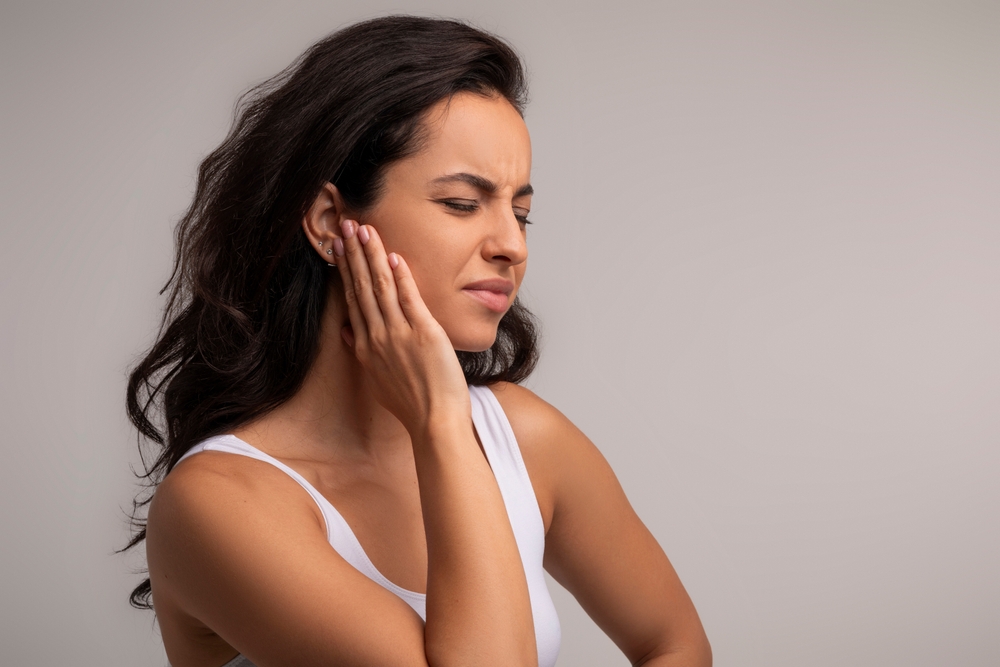The Surprising Connection between Wisdom teeth and Tinnitus

Have you ever experienced ringing in your ears and wondered if it could be related to your dental health? It may surprise you to learn that there is a connection between wisdom teeth and tinnitus, highlighting the importance of seeking expert care at dental clinics and, when necessary, consulting specialists in oral surgery to address these interconnected issues. (Source: Healthline, Can Wisdom Teeth Really Cause Tinnitus?, Medically reviewed by Jennifer Archibald, DDS — Written by Catherine Crider on May 2, 2023, https://www.healthline.com/health/wisdom-teeth-tinnitus ).
Tinnitus is a condition characterized by a constant ringing or buzzing in the ears, triggered by various factors. Recent studies have drawn attention to an unexpected link between wisdom teeth and tinnitus, sparking discussions about the interplay between oral health and auditory symptoms.
Can Wisdom Teeth Cause Ear Ringing?
Impacted wisdom teeth can create pressure and inflammation in surrounding tissues, which may indirectly affect the ear through shared nerve pathways or pressure on the temporomandibular joint (TMJ). Additionally, infections stemming from these teeth can escalate inflammation and potentially contribute to tinnitus.
Ashraf Dentistry comments, “While it may seem surprising, the anatomical proximity of the jaw to the ear explains how impacted or infected wisdom teeth could contribute to auditory disturbances like tinnitus. It’s important to monitor any unusual sensations in the ear when dealing with wisdom tooth issues.”
Will a Tooth Extraction Cause Tinnitus?
Tooth extractions, particularly for wisdom teeth, can sometimes result in temporary or prolonged tinnitus. Factors include noise from dental tools, changes in jaw alignment, or temporary inflammation affecting the TMJ. While rare, post-extraction complications such as dry socket can also exacerbate these symptoms.
Ashraf Dentistry shares, “Tinnitus after tooth extraction is typically rare and transient, but patients should ensure they communicate any unusual ear-related symptoms to their dentist or oral surgeon. Post-procedure care is vital to reduce inflammation and promote healing, which can indirectly prevent associated symptoms.”
Do Shifting Teeth Cause Tinnitus?
When teeth shift due to dental crowding, untreated misalignment, or even following wisdom tooth removal, the resulting bite changes can lead to TMJ disorders. These disorders are strongly correlated with tinnitus, highlighting the need to address alignment issues proactively.
Ashraf Dentistry notes, “Shifting teeth can significantly alter the balance of pressure in the jaw, which may strain the TMJ and contribute to tinnitus. Maintaining regular orthodontic evaluations and monitoring alignment changes can help mitigate these risks.”
How to Prepare for Tinnitus After Tooth Extraction?
Preparation and post-operative care can reduce the likelihood of developing tinnitus after an extraction. Recommendations include:
- Reducing stimulants like caffeine or alcohol, which can exacerbate tinnitus.
- Avoid smoking, as smoking can slow healing and increase inflammation.
- Managing stress levels, as stress can heighten awareness of tinnitus.
- Discuss protective measures, such as earplugs, with your oral surgeon to limit noise exposure.
Ashraf Dentistry says, “Proactive preparation is essential for minimizing potential side effects like tinnitus. Patients should openly discuss their concerns with their dental team, as tailored advice can address unique risk factors. Practices like avoiding stimulants and managing stress can make a meaningful difference in recovery.”
How is Tinnitus Caused by Wisdom Teeth Treated?
Treating the root cause often alleviates tinnitus related to wisdom teeth. This may involve:
- Removing impacted or infected wisdom teeth to relieve pressure or inflammation.
- Addressing TMJ issues with physical therapy, bite guards, or stress reduction techniques.
- Promptly treating oral infections to prevent them from exacerbating ear-related symptoms.
Ashraf Dentistry comments, “The key to managing tinnitus associated with wisdom teeth is identifying and addressing the underlying dental or jaw issue. Patients experiencing persistent symptoms should consult both their dentist and an ENT specialist to rule out overlapping causes and develop a comprehensive treatment plan.”
The connection between wisdom teeth and tinnitus highlights the complex yet interesting relationship between oral health and overall well-being. Although the link is not always direct, conditions such as impacted teeth or TMJ disorders emphasize the importance of being vigilant in maintaining dental health. Seeking care at trusted dental clinics and consulting specialists in oral surgery when wisdom teeth issues arise is essential for preventing complications that can extend beyond the mouth.
Ashraf Dentistry concludes, “This surprising connection highlights how addressing dental concerns promptly can have far-reaching benefits for both oral and general health. Understanding these links empowers individuals to make informed decisions about their care and seek the expertise of dental professionals when needed.”
